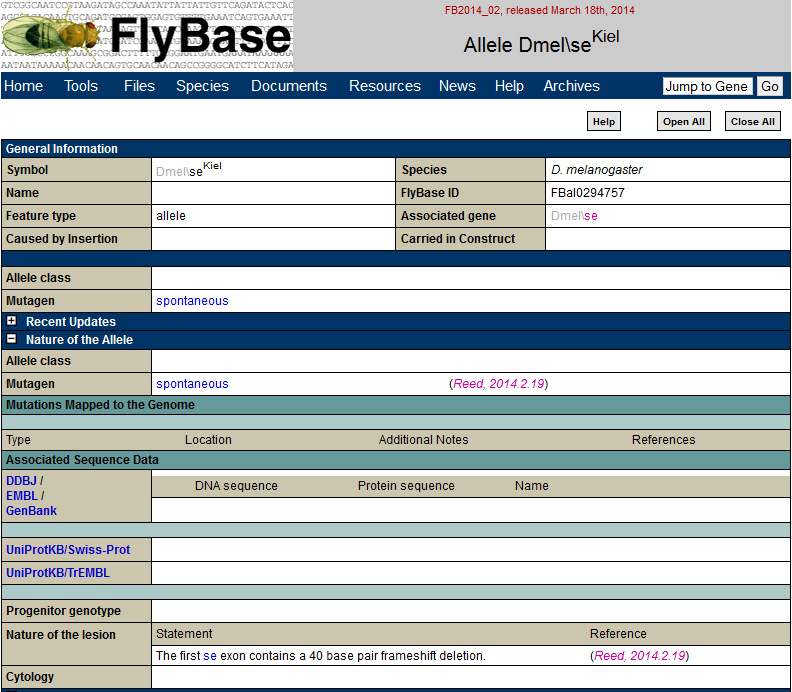Fruit flies, like humans, carry a lot of recessive deleterious alleles. When wild chromosomes are made homozygous there is a dramatic loss of fitness. We have been curious about the effects of this and Louis Boell aggressively inbred wild caught Drosophila melanogaster for a few generations by reestablishing the line from single females each generation. Not only did we see a change in behavior of the flies, several mutant phenotypes appeared, more than I expected. (We also carefully measured changes in wing morphology during several generations of inbreeding, to compare to Louis' results comparing wild and lab mice jaw morphology, but saw no significant effect.) Myles Tabios, a biology major and former student of my BIOL375 Genetics class, investigated one of these mutants in the lab and discovered it was a new allele of a gene called sepia (which encodes a PDA synthase enzyme) by a classical genetic complementation test. Then he designed his own PCR primers, sequenced the gene and found the mutation results from a 40 base pair deletion that completely disrupts the gene sequence. I checked the Bloomington Stock Center (that maintains mutant Drosophila stocks as a resource for genetics researchers) and they only have one sepia allele: sepia[1], the first allele discovered in Morgan's lab in the 1920's. Until now sepia[1] was also the only allele that was described on a molecular level. I contacted them and said that we likely have an amorph (a completely non-functional allele) and they are interested in adding it to the collections! They try to maintain at least two amorphs of each gene for testing... I sent them the stock and the allele, sepia[Kiel] (the allele originated from a wild population in Kiel, which incidentally is where Drosophila melanogaster was first described by Meigen---but that is a different story), has now showed up in the newest version of flybase (link).
It's nice to have a study that initially found no positive result (no change in morphology with inbreeding) to end up resulting in a lasting impact no matter how small it might be.
